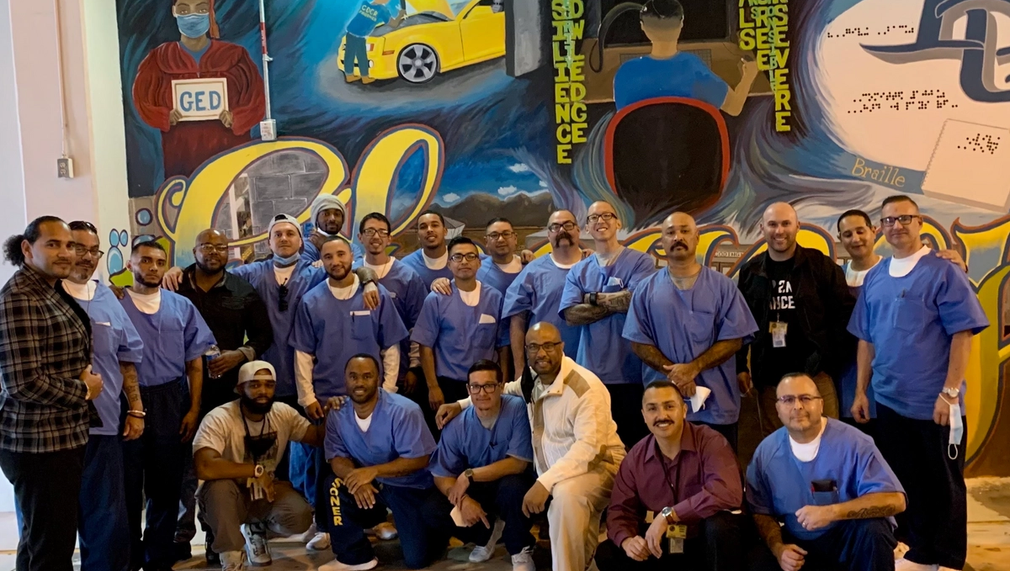Navigating Life
The Navigating Life Program, implemented by The After Life Initiative, empowers formerly incarcerated individuals with comprehensive support and resources to successfully reintegrate into society. Led by individuals who have personally experienced incarceration, this program provides cultural adaptation, employment assistance, emotional support, and practical skills training to reduce recidivism and increase opportunities for those re-entering communities.

What is the primary issue area that your application will impact?
Opportunities for People Who Have Been Incarcerated
In which areas of Los Angeles will you be directly working?
East LA
South LA
In what stage of innovation is this project, program, or initiative?
Pilot or new project, program, or initiative
What is your understanding of the issue that you are seeking to address?
The Formerly incarcerated face many challenges when reintegrating into society. These challenges include cultural adaptation, as they may struggle to adjust to societal changes that occurred during their time in prison. The unfamiliarity with technology, evolving social norms, and changes in communication can create barriers to their successful reentry. Employment is also a challenge for these individuals. The stigma associated with criminal records often leads to limited job opportunities and discrimination in the hiring process. Communication and emotional well-being are critical aspects of successful reentry and formerly incarcerated individuals face difficulties in expressing their frustrations, fears, and concerns. Lastly, Resisting negative influences is hard. The presence of negative peer influences, the temptation to engage in criminal activities, and the lack of positive role models can lead to recidivism and hinder their efforts to reintegrate into society successfully.
Describe the project, program, or initiative this grant will support to address the issue.
The Navigating Life program is distinct in its approach as it is run by formerly incarcerated mentors who draw from their own personal experiences to guide and support individuals transitioning back into society. These mentors serve as role models who have successfully overcome the challenges of reentry and are uniquely positioned to understand the barriers and navigate around them. The program pairs newly released individuals with these mentors who provide firsthand guidance throughout the reentry process. The mentors have firsthand knowledge of the struggles faced by individuals coming out of incarceration, and they leverage their personal experiences to provide practical advice, emotional support, and motivation to help participants achieve a successful reentry. By having mentors who have walked the same path, the Navigating Life program creates a sense of trust and understanding that fosters strong connections between mentors and participants. These mentors serve as mentors and guides, offering insights, sharing strategies, and providing a compassionate ear to listen to the concerns and frustrations of those transitioning back into society. Overall, the Navigating Life program, led by formerly incarcerated mentors, offers a unique and powerful approach to supporting individuals during the reentry process. By sharing their experiences, these mentors empower participants, build resilience, and create a path to a successful reintegration into society.
Describe how Los Angeles County will be different if your work is successful.
If the Navigating Life Program in Los Angeles County is successful, it will bring about a significant transformation with far-reaching impact. One of the most notable changes will be a reduction in violence and crime within the community. By effectively addressing the challenges of reentry, the program will empower formerly incarcerated individuals to reintegrate successfully and lead law-abiding lives, breaking the cycle of violence and reducing recidivism rates. The program's focus on cultural adaptation will foster a more inclusive and harmonious community. This will contribute to a decrease in social tensions and conflicts, promoting a safer and more cohesive environment for all residents. The program will result in reduced violence and crime, foster an harmonious environment, increase economic opportunities, and promote healthier relationships. The program will contribute to a safer, more peaceful, and prosperous county for all residents.
What evidence do you have that this project, program, or initiative is or will be successful, and how will you define and measure success?
We will employ a comprehensive evaluation framework that encompasses both quantitative and qualitative measures. Firstly, we will measure success through quantitative metrics such as recidivism rates. By tracking the number of program participants who successfully avoid reoffending and remain engaged in positive community activities, we can gauge the program's effectiveness in reducing recidivism. Additionally, we will monitor employment outcomes, tracking the number of participants who secure stable employment, increase their income levels, and improve their economic well-being. Furthermore, we will utilize qualitative methods to capture the transformative impact of the program on participants' lives. Through interviews, surveys, and testimonials, we will gather feedback on their experiences including their perceptions of personal growth. Regular program evaluations and ongoing feedback from participants, mentors, and stakeholders will inform program enhancements and adjustments.
Approximately how many people will be impacted by this project, program, or initiative?
Direct Impact: 50
Indirect Impact: 325